
Photography by John DeMajo
 |
THE CHURCHES OF RICHMOND
Photography by John DeMajo |
St Elizabeth Catholic Church Second Avenue and Victor Street Richmond, VA |
For more information and a history of the church, please visit the St. Elizabeth web site at: http://www.stelizabethcc.org/ |
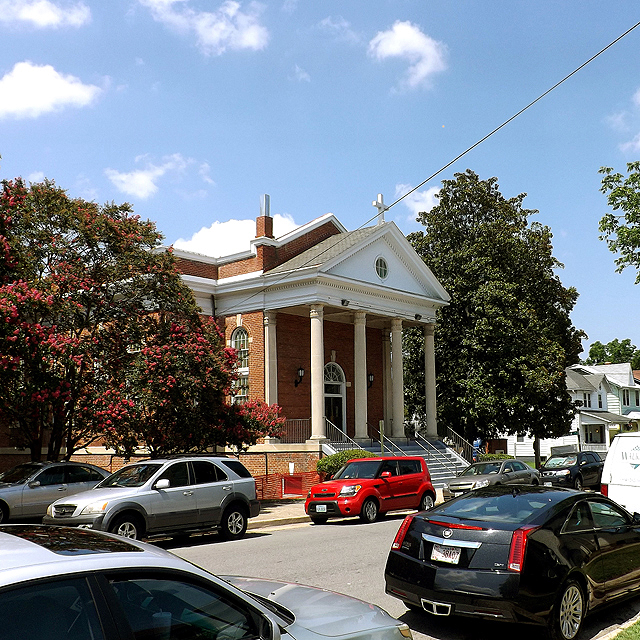 |
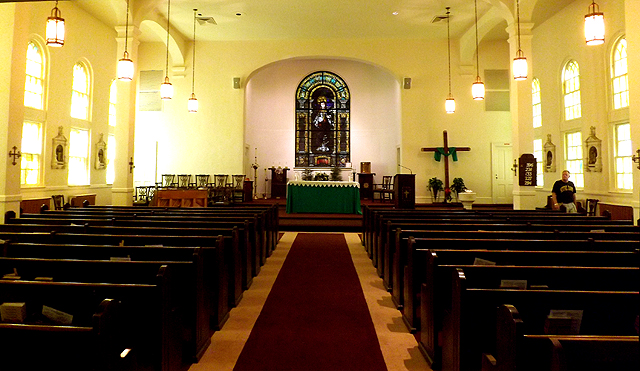 |
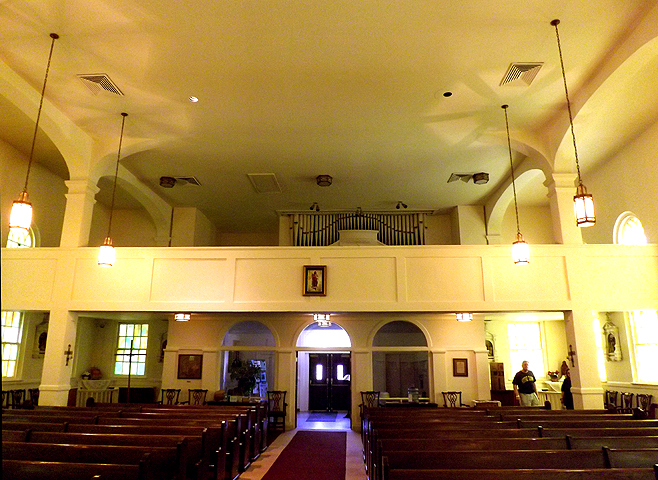 |
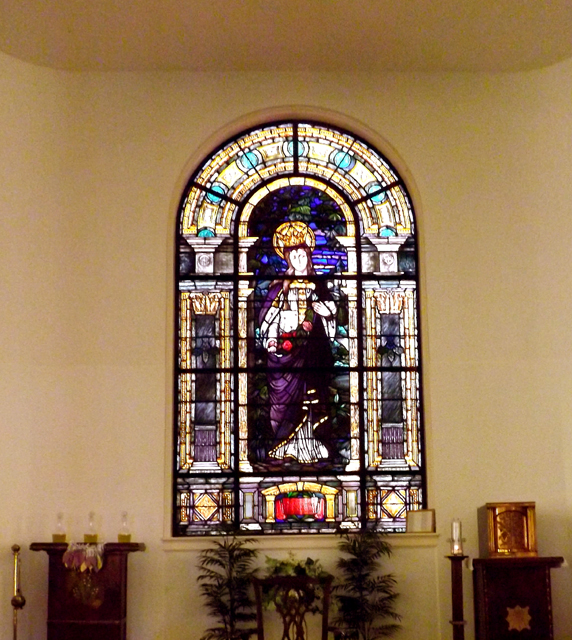 |
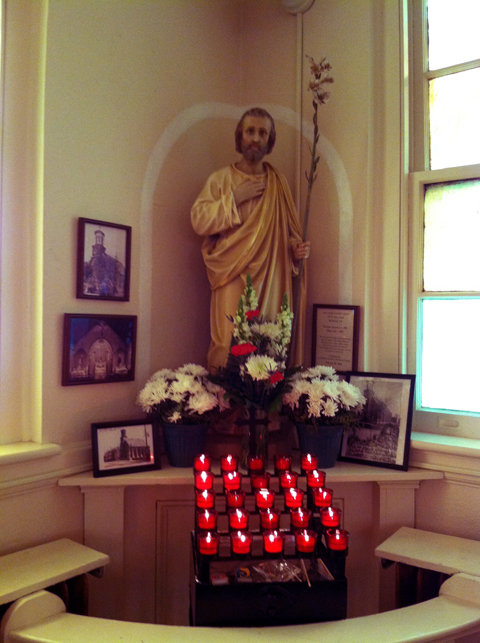 |
This statue of St. Joseph originally stood in Richmond's African-American Parish Church, St. Joseph's. Founded in 1885, St. Joseph's Church served Richmond's African-American community until it's closing in 1969. The statue was recently discovered by Father James Arsenault, and brought to St. Elizabeth's Church where many former St. Joseph members and their families now worship. |
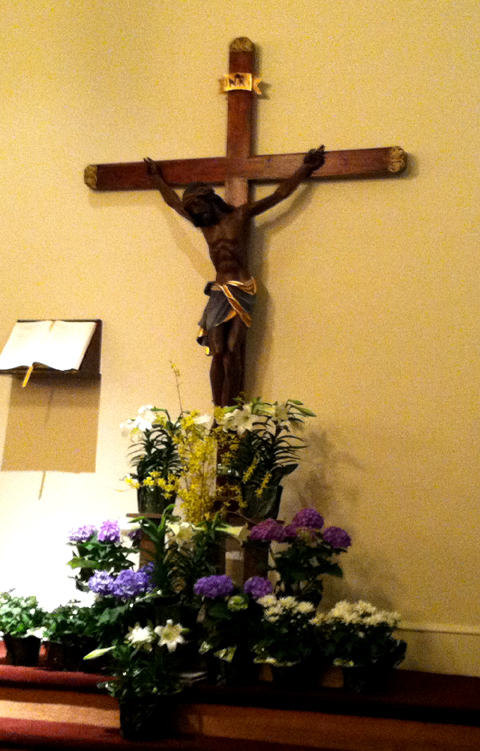 |
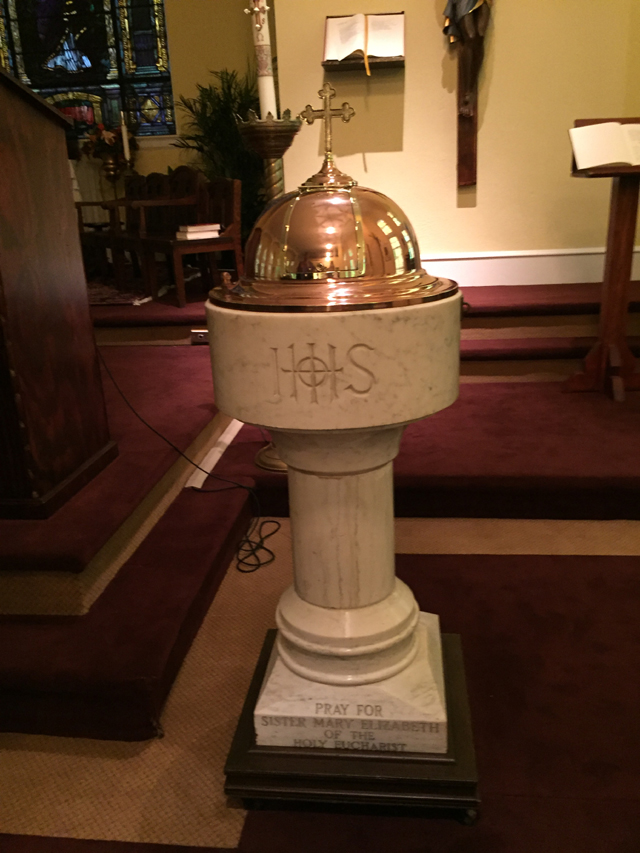 |
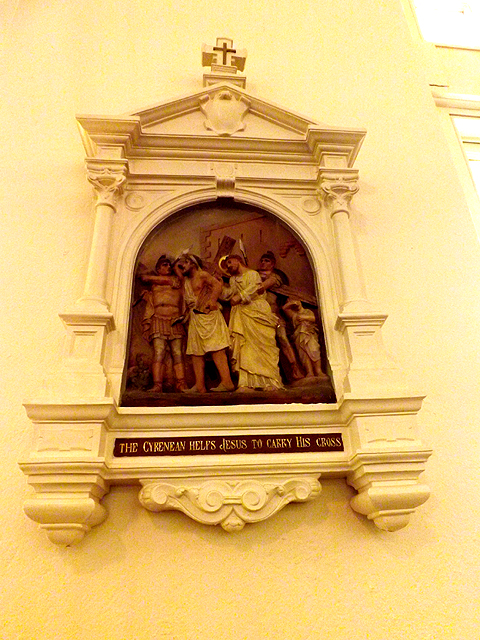 |
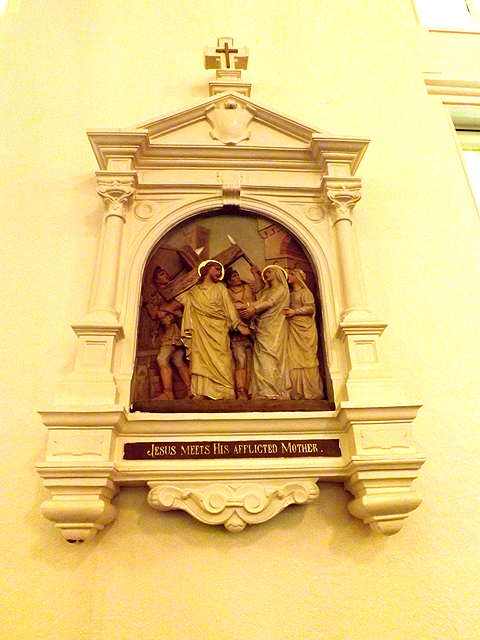 |
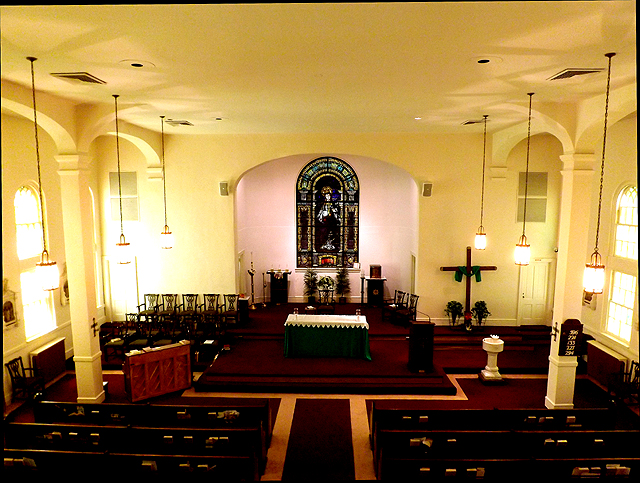 |
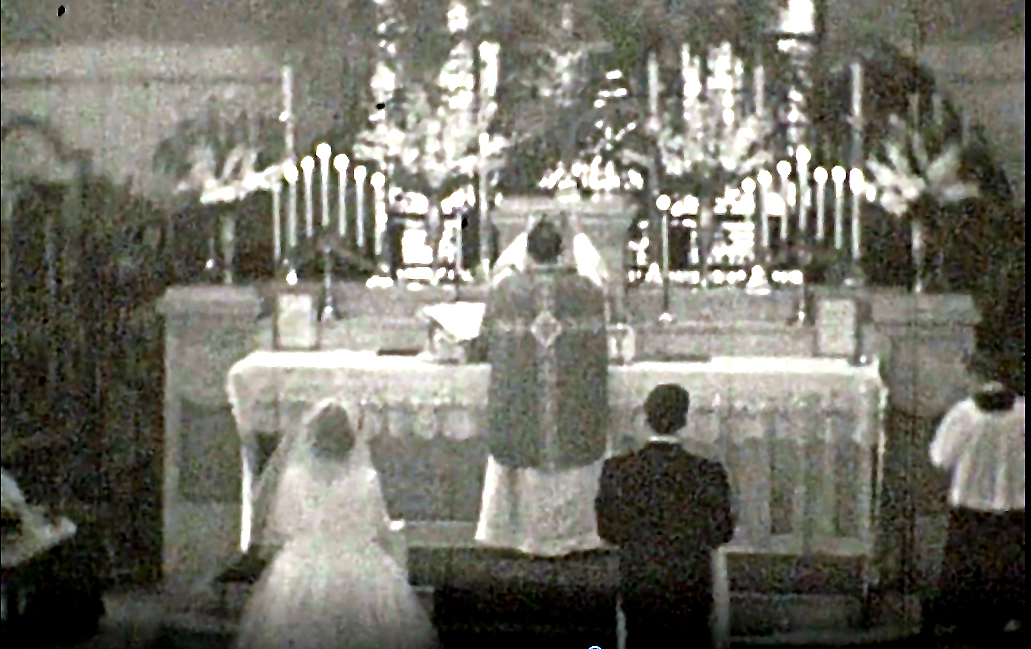 |
A historic photograph of the church's original high altar. |
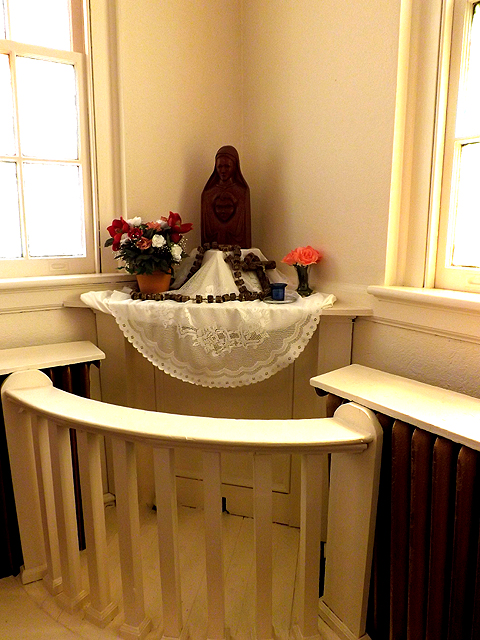 |
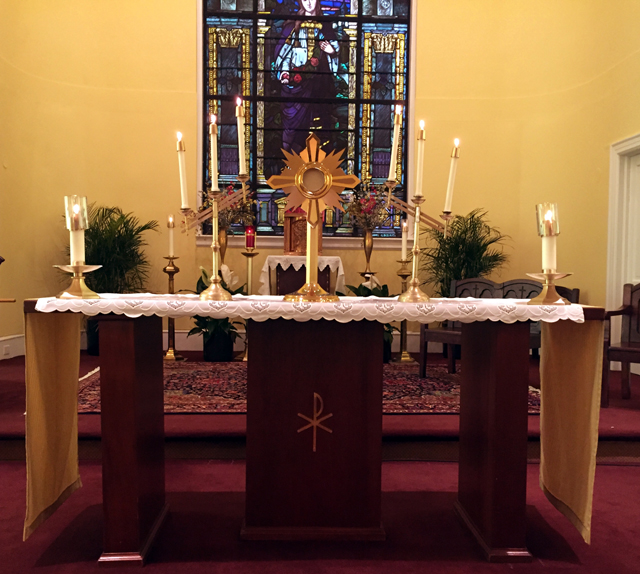 |
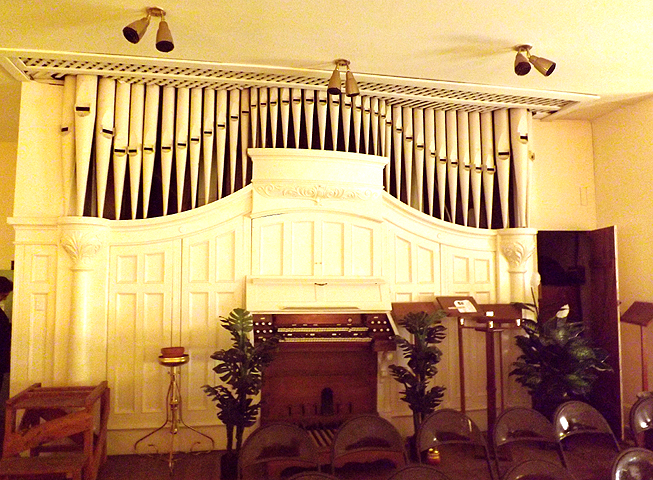 |
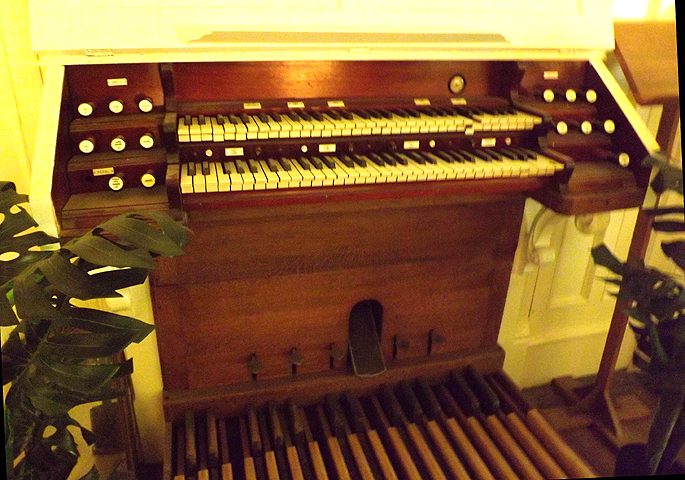 |
ORGAN INFORMATION AND HISTORY |
Saint Elizabeth's R. C. Church Moller organ, 1905, Opus 601, 2m/14r GREAT 8 Open Diapason SWELL 8 Stopped Diapason PEDAL 16 Double Open Diapason COUPLERS (thumb pistons) COMPOSITION PEDALS Organ moved to this location from Fifth Street Baptist Church in 1925. Current installation is in the rear gallery, with the top half of the facade passing through a ceiling opening into the attic. The facade contains speaking pipes of the Open Diapason and Dulciana; ceiling meets the pipes just above the mouth openings. The manuals retain tracker action, but the pedals have been electrified. Site visits by Donald Traser |
MORE ORGAN NEWS |
Click here to see a video of the organ's Easter 2013 first public performance in almost forty years. (Quicktime free software is required to view this video) |
After thirty-years of down time for Moller Opus 601, the church's new pastor has, along with the congregation, taken an interest in having the organ again used. Toward this end, two Richmond area organ historians / technicians have volunteered to work on the organ, and to make it playable to the best of their ability given the lack of dedicated funds for that purpose. As of 2013, a replacement blower has been donated and installed, and the instrument is again winded. A substantial amount of work has been done as far as assessing the condition and making temporary repairs which allow the organ to play again in a slightly limited fashion. The usable pipe work has been tuned, and it is the intent of the Parish to show the instrument off during the Easter, 2013 Mass. While the organ is still plagued by problems such as dried out wood in the trackers, which subjects them to easy breakage in the course of normal playing, a limited amount of rodent damaged pipework, and the need to refurbish the bellows and parts of the winding system that have deteriorated with age, at least the Church has now been provided with an assessment of the needed repairs that will need to be made if and when funds become available. What should be born in mind by the community, is that this organ represents the epitome of early twentieth-century tracker organ building. It's tonal resources are consistent with what was being done in that period, and the craftsmanship and physical design is symbolic with the work done by the Moller firm when it was under the immediate supervision of it's founder, Matthias P. Moller. The photographs below illustrate the present status of the instrument, and its need for proper restoration in order to preserve this important piece of Richmond history. |
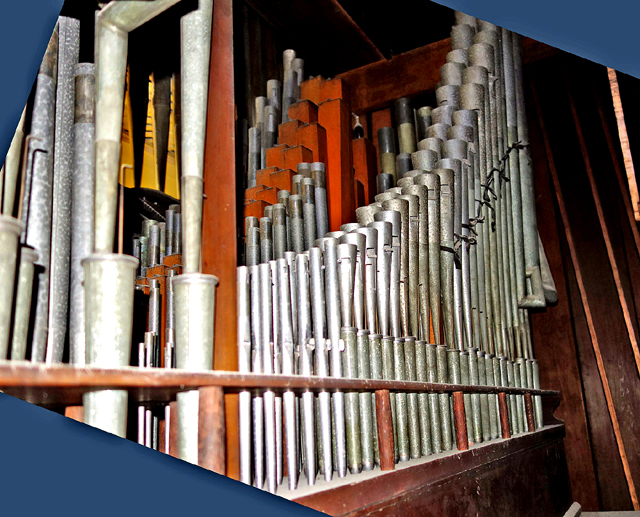 |
GREAT DIVISION PIPE WORK |
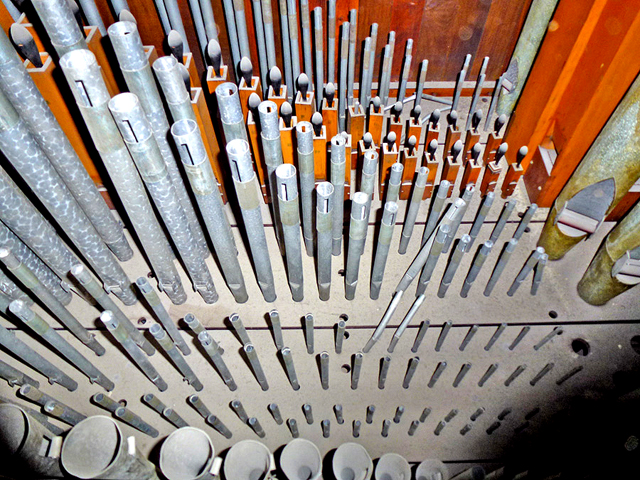 |
The organ's Swell Division |
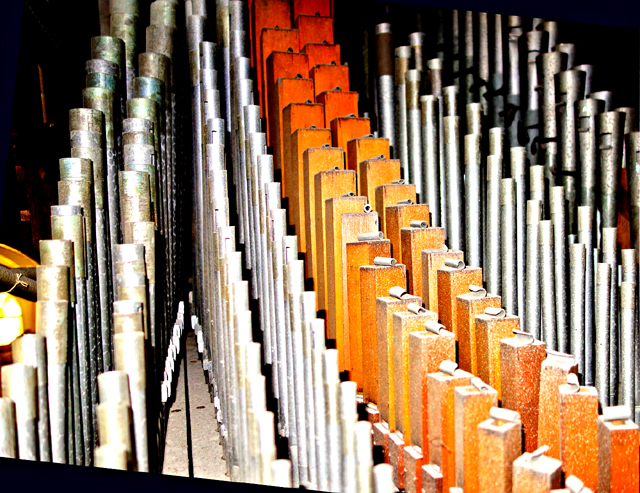 |
Another view of the Great chest |
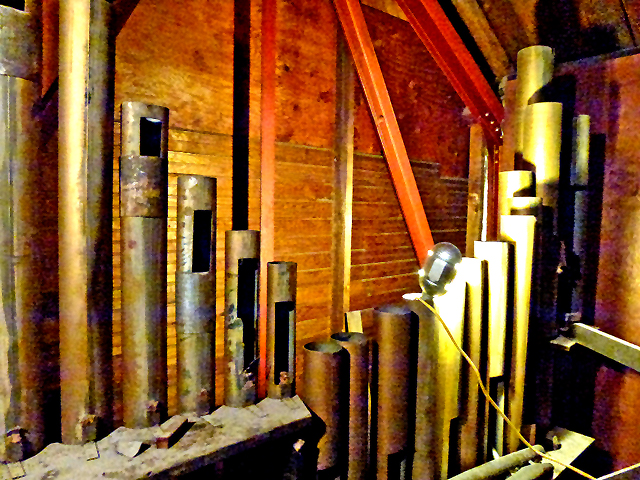 |
View of church attic illustrating large pipes which "tower" high above the church ceiling. |
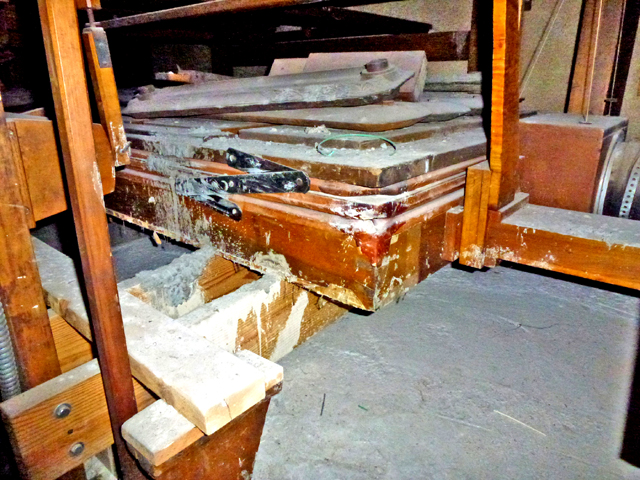 |
This is a view of the main air reservoir, which serves as the "lungs" of the organ. Note that floor repairs made, probably in conjunction with the installation of a passenger elevator in the 1980's, have left the base of the organ in dire need of cleaning and restoration. Also note that the organ's original lead weights, which serve to control the critical air pressure to the pipes, have been removed and replaced with pieces of old steam radiators. |